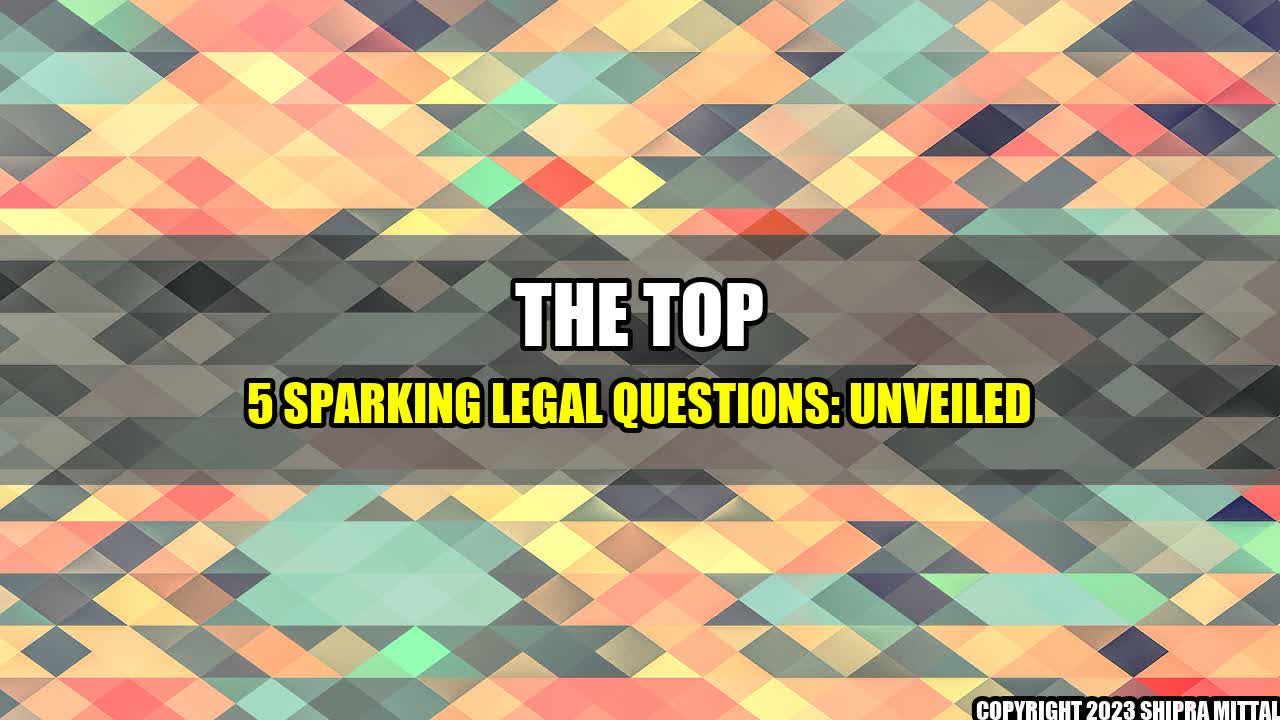
As technology continues to advance at a rapid pace, it is not uncommon to see businesses and individuals falling prey to legal complications. The emergence of new technologies has paved the way for new legal questions and complexities that require immediate attention.
Here are some of the sparking legal questions that you might want to know:
One of the most debated questions in the technology industry is whether software should be patentable or not. Some argue that software is a form of intellectual property and should be protected. However, there are others who believe that software should be treated as a creative work and should not be restricted by patents. If you are developing software or using it for your business, it is important to understand the legal implications that come with it.
With the widespread use of the internet, copyright law has become more complex than ever before. From music to videos, images to written content, everything is just a click away. It is important to know how copyright law applies to online content and what actions you can take to protect your own content.
Online defamation can be a major concern for businesses and individuals alike. With the ease of access to social media and other online platforms, it is important to understand your rights and responsibilities when it comes to online defamation. You need to be aware of the extent of your liability and how to take steps to protect your reputation.
Data privacy is a growing concern for governments and businesses around the world. Each country has its own set of laws governing data privacy and it can be difficult to navigate through them. It is important to be aware of the differences in data privacy laws around the world to avoid any legal complications.
The rise of artificial intelligence has raised concerns about who should be held responsible for criminal acts committed by machines. It is still unclear whether AI can be held liable for its own actions or if the responsibility lies with the creators or operators of the machine. Understanding the legal implications of AI is crucial for companies working with this technology.
In conclusion, the legal implications of new technologies are vast and complex. It is important to stay informed about the latest legal developments and to take proactive steps to prevent any legal complications. By understanding the legal questions raised by technological advancements, we can take better steps to protect ourselves and our businesses in this digital age.
Article Category: Legal
Author: Akash Mittal
Akash Mittal Tech Article
Share on Twitter Share on LinkedIn